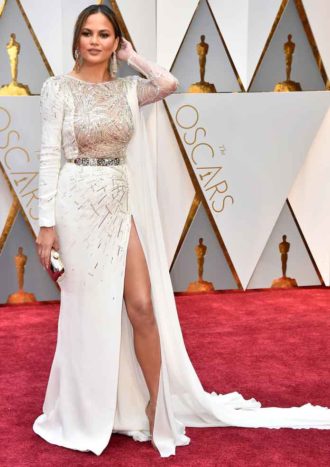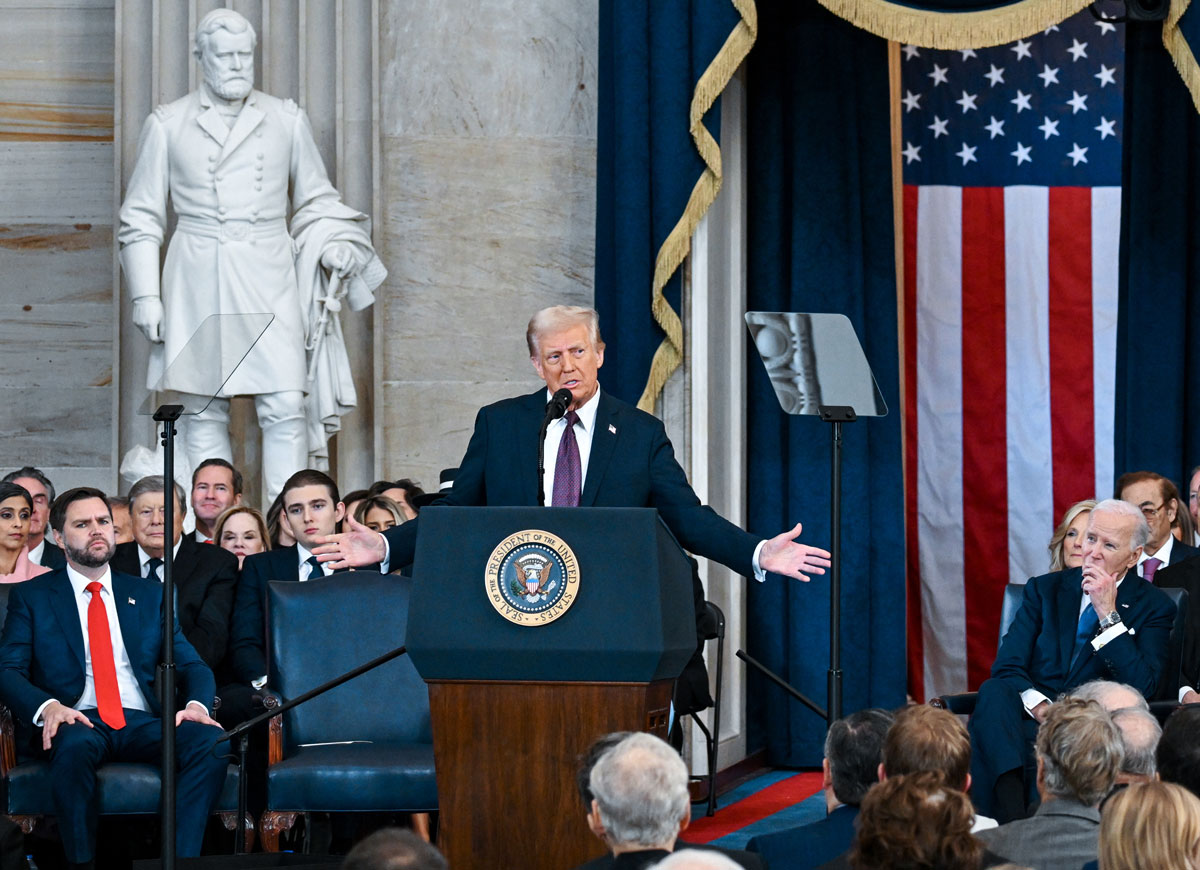Leah McKendrick & Natalia Leite On ‘M.F.A.,’ SXSW, Francesca Eastwood [VIDEO EXCLUSIVE]
Leah McKendrick & Natalia Leite On ‘M.F.A… by Uinterview
Natalia Leite and Leah McKendrick, director and writer of the new thriller, M.F.A, spoke exclusively to uInterview at SXSW 2017 about the film which stars Francesca Eastwood as Noelle a student in a visual arts program, who is raped by a classmate. Noelle attempts to report the crime to her school, but realizes to her disappointment that the institution won’t do anything to aid her.
McKendrick explained her motivation behind the project. “Writing the script was really in response to all of the very similar stories I kept seeing popping up in the media about these girls being assaulted in school, and the system failing them, whether it be the school or the police,” McKendrick told uInterview.
“Feeling like I needed to do something, and not really knowing that I had any power in any way, and putting that into my art, and writing a script that I felt hopefully gave a little cinematic catharsis and retribution that hopefully girls would be entertained,” she said. “Not just girls obviously, but the girls that’ve experienced this and boys as well hopefully, would feel like their voice had been heard, and that it matters.”
McKendrick then described director Leite as “the perfect director.” Leite herself had endured a similarly traumatic experience, and was immediately drawn to the script upon reading it.
“I read the script, and was immediately like, it’s such a page turner, it was super engaging, super entertaining, read it super fast, and it was really well-written,” Leite praised. ” I was drawn to the subject matter also just on a personal level, having gone to art school, and having gone through similar situations.”
M.F.A. is not your typical rape-revenge film, however, which Leite went on to explain. “It seems like a lot of those films were more from a male perspective, a lot of them were male directors.”
“And that a lot of times, when you see stories where, the rape-revenge stories, where women are out seeking revenge and killing people. They’re crazy and you don’t connect with them, and they’re just psychotic women, you know? And for us, we wanted to do something where the character’s super likeable, and we can relate to her, even though she’s doing bad things,” the director said.
McKendrick also emphasized that her inspiration for writing the script came organically.
“I just write from my own perspective, so everything that I write is always going to have that female protagonist, and is going to be empowering to women hopefully. That’s always my goal and where my artistic preferences lie,” she said.
On the choice of Eastwood for the role, director Leite said, “She really understood the story, she was willing to take the risks that it called for… We wanted someone to have a very innocent and charismatic look and yet have a lot of depth to her, and can just go on this emotional journey with her, and I think she really achieved that.”
The film premiered nationwide on March 13, 2017, to rave reviews from audiences and critics alike.
Writing the script was really in response to all of the very similar stories I kept seeing popping up in the media about these girls being assaulted in school, and the system failing them, whether it be the school or the police. And feeling very powerless in Los Angeles being a graduate of college, and feeling like I needed to do something, and not really knowing that I had any power in any way, and putting that into my art, and writing a script that I felt hopefully gave a little cinematic catharsis and retribution that hopefully girls would be entertained. Not just girls obviously, but the girls that've experienced this and boys as well hopefully, would feel like their voice had been heard, and that it matters. And then I searched for the perfect director, and I found her.
I read the script, and was immediately like, it's such a page turner, it was super engaging, super entertaining, read it super fast, and it was really well-written. And I was drawn to the subject matter also just on a personal level, having gone to art school, and having gone through similar situations. And was just really excited about collaborating with Leah on this, and putting it out there.
There's a lot of great revenge films out there, and definitely I've watched a lot of other films you see like, how has it been portrayed? What's already out there in the world? It seems like a lot of those films were more from a male perspective, a lot of them were male directors. And we wanted to do something that felt fresh. For one, I was just surprised that this film didn't exist already. Because this is an issue that's out. Specifically for girls in college campuses, there was no fiction narrative version of it. And that a lot of times, when you see stories where, the rape-revenge stories, where women are out seeking revenge and killing people. They're crazy and you don't connect with them, and they're just psychotic women, you know? And for us, we wanted to do something where the character's super likeable, and we can relate to her, even though she's doing bad things. Because there's so many examples of that for men. You see Dexter, and Breaking Bad. There's just millions of men doing bad things and we side we them, because we're like yes, that person deserved to die, you know? So it's sort of like a cathartic experience I think, for women to have a film that pushes that out there too.
No, it's so interesting because I just write what comes to my brain. I don't think that I analyze it in a way that I'm like, this isn't out there, so I have to make this out there. A female Dexter doesn't exist! I just write from my own perspective, so everything that I write is always going to have that female protagonist, and is going to be empowering to women hopefully. That's always my goal and where my artistic preferences lie. But I did, I read this really interesting news report when I was writing the film about a mother who had discovered that her boyfriend was molesting her child. And she lit him on fire. And I was like, whoa that's crazy. And I'm reading thousands of the comments, and they're like, girl I'll bail you out, or like, I gotchu, and they're rooting her on, and I thought how interesting. It's a barbaric thing to do to a human, very primal. And it's just this onslaught of support. And I thought, how interesting, that people had this visceral reaction, this loyalty in certain areas of protecting your child. And with something like rape, there was this automatic response from women like, I get her. That's taken from me, I've had that experience, I've had something similar, and I understand her wanting to kill these guys. And I thought if I could just mold a script where you're on her side, where you see what she went through, that when the dude dies, that she doesn't feel like a crazy serial killer. Because you understand the intentions behind her motives.
Natalia: It seems like also, there is so many, for women who can watch a film where there's revenge and justice is served, which everyone can relate to that emotion. And to have it be fictionalized, there's an important place for that. As women, we don't have a lot of stories where we get to be dirty Harry. So Francesca had that experience.
She really understood the story, she was willing to take the risks that it called for. It was obviously a very challenging role. It was a lot of trust stepping into it. I think she checked all of the boxes for us, where we wanted someone to have a very innocent and charismatic look and yet have a lot of depth to her, and can just go on this emotional journey with her, and I think she really achieved that.
Natalia: Any time we've described this film to women, they've all been like, I need to see that. Why hasn't this been out there? And we had two screenings already, and there were women leaving the theater like bawling in tears, but in a good way. Just letting out something that happened to them. But hopefully we'll connect men a lot too, because we want to do something that's entertaining and that's for everyone.
Leah: The original draft of the script was very dark, and didn't have a whole lot of humor, and I just vomited out a draft, and was like, here's my movie. And my professor, who's a big mentor of mine, and was a producer on this, he really said, that feels a little soap-boxy, that feels like a typical approach to a film like this, with such a rough subject. But I feel like that can alienate a whole audience of people that would be very entertained. Maybe they're a man, and they haven't been sexually assaulted, and maybe didn't have the female college experience. But they can still be entertained as well if we can add that levity, and we can add that humor, and add those moments that feel good. And what he kept using as an example for me in my head as I kept doing drafts was DJano Unchained. Doesn't it feel good? When he's there and he's bringing down the slave owners and these white people who have been oppressing him. Doesn't it feel good? Yes it felt good! And so that was my hope in sort of infusing the script, so that it didn't feel so one sided and so "this is for women who have been assaulted in college." That's what we really tried to do, was make it a fun, cinematic film that also had a soul, and hopefully a catharsis for certain people.
RELATED ARTICLES
Get the most-revealing celebrity conversations with the uInterview podcast!



![Leah McKendrick & Natalia Leite On ‘M.F.A.,’ SXSW, Francesca Eastwood [VIDEO EXCLUSIVE]](https://cdn-o9.uinterview.com/wp-content/uploads/2017/03/Eastwood_crop.jpg)
 Click here for the Oscars 2017: 10 Best Dressed Photos Slideshow
Click here for the Oscars 2017: 10 Best Dressed Photos Slideshow![Francesca Eastwood On ‘M.F.A.,’ SXSW, Sexual Assault, Dad Clint Eastwood [VIDEO EXCLUSIVE]](/blank.gif)



Leave a comment